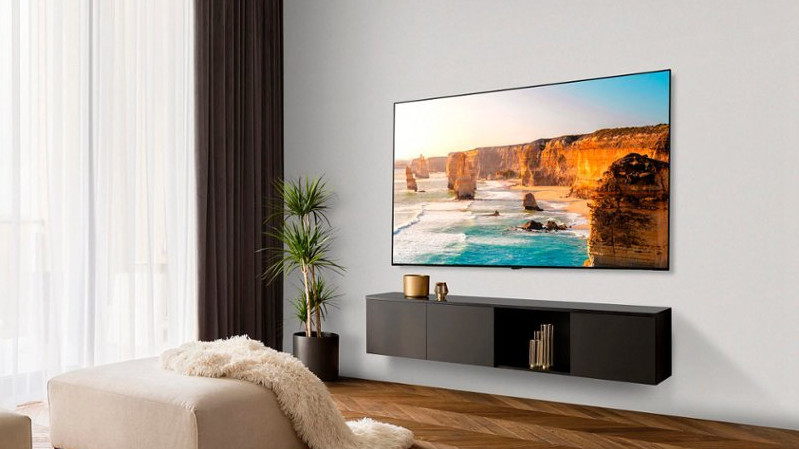
LG isn’t really a company that rests on its laurels. Year in and year out, it’s using new display innovations from its sister company, LG Display, to create some of the best OLED TVs. Case in point? The award-winning LG G3 OLED that’s currently one of the best TVs you can buy.
That said, despite there being a lot of innovation on the higher-end models, LG’s entry-level OLED TVs can sometimes be…well, a lot less innovative. (See: the LG A2 OLED that uses a 60Hz panel instead of one that's 120Hz.)
During our lab testing of the LG B3 OLED for our review, we discovered that — outside of a small difference in light output — the LG B3 OLED and last year’s LG C2 OLED are nearly identical. Here’s the lab data to prove it.
LG B3 OLED vs LG C2 OLED: Test results
A rose by any other name...
Usually I'd break down all the differences between the two TVs' performances here — but, as you can see, the differences are relatively minimal. That being said, the LG B3 OLED sharing these performance numbers of the C2 OLED isn’t such a bad thing — remember, the LG C2 OLED was one of the best TVs of 2022.
The reason the C2 was so high up on our list was due to its incredible color saturation and accuracy as well as its low input latency, all of which are traits shared by the LG B3 OLED. In fact, the B3 even squeaks out a small win in SDR brightness, though not by a wide margin.
The LG B3 actually keeps up pretty well with the LG C2 OLED in almost every regard, only really falling down in our HDR brightness tests. Because of that difference, you'd be able to tell the TVs apart when they're next to one another playing the same content, but you'd still be wowed by both pictures.
In terms of overall performance, the LG B3 and C2 OLED are neck and neck.
But their sizes, processors and inputs are the X factors
So given the fact that the specs are the same, should you just buy the LG B3 OLED because it's cheaper? Unfortunately, it's not so cut and dry.
The B3 OLED is only available in a 55-, 65- and 77-inch screen sizes, while the C2 OLED comes in a range of sizes starting at 42 inches and scaling up to 83 inches. If you need a smaller OLED TV, the C2 is going to be your only choice.
The other complicating factor here is that the two OLED TVs use different processors from different years: The LG C2 OLED uses the α9 Gen5 AI Processor 4K while the B3 OLED uses the a7 AI Processor Gen6.
Unfortunately, LG is really cagey about what happens inside the pictures processors so we really don't have benchmarks to compare them against one another. Anecdotally, however, any video I've seen upscaled with the a7 Gen6 processor looked great — probably even a little cleaner than last year's a9 Gen5.
Again, because this is slightly subjective, it's something you'll need to see side-by-side for yourself before forming an opinion on, but I think the B3 might actually be slightly better than the C2 in this category.
So where's the bad news? Well, the LG B3 OLED only comes with two full-spec HDMI 2.1 ports that can pass 4K/120Hz signal. The LG C2 OLED had four such ports. That might not make a huge difference for you, especially if you aren't much of a gamer, but folks who have more than one input device capable of playing 4K/120Hz content should probably consider paying a bit more for the C2 OLED for that reason alone.
LG B3 OLED vs LG C2 OLED: which one should you buy?
Based on the measurements alone, I think you'd be happy with either LG OLED TV. They both excel in many of the most important areas like color saturation, color accuracy and input latency. Yes, it'd be great to see a slightly higher peak brightness on the B3 OLED that matches the C2, but I don't think it's a deal-breaker that it doesn't match the C2 in that one category.
I think the only reason you should pay more for the C2 OLED is that you want all four of the HDMI ports to be full-spec HDMI 2.1, capable of passing 4K/120Hz video. That's really important if you're a gamer trying to future-proof their setup for the next round of consoles coming out sometime in the next five to seven years.
If you're not really a gamer and the lower peak brightness isn't a deal-breaker, then I think you should absolutely save some money by buying the B3 OLED instead.







